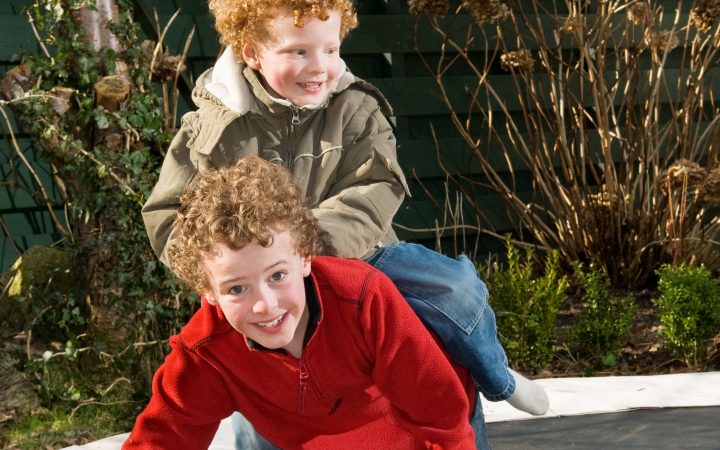Mum Likes ME best

Karin was at her wit’s end. Her two sons, James (12) and Eric (9) were constantly fighting, bickering and annoying one another. “I don’t understand why they have to be at each other all the time. It’s so exhausting having to referee everything between them. Eric gets mad that he isn’t allowed to do all the same things James is so he picks on James. James is irritated to have his little brother underfoot, but instead of dealing with it in any kind of respectful manner, he just screams at Eric or calls him names. It’s getting to the point I can’t even stand to be in the house with them anymore.”
Teaching our kids to get along with one another does much more than just make our day easier.
What NOT to Do…
Parents often become exasperated by sibling rivalry. We get pulled into the drama. Often, sibling rivalry becomes a form of competition where kids get into the habit of creating situations that force parents to choose whom to believe, whom to favor, whose side to take.
Some parents try to avoid getting pulled into these dramas by “letting the kids work things out for themselves” but this can be just as bad as micromanaging. Kids get into these situations but they rarely have the skills to get themselves out.
When parents simply opt out of sibling disputes, their children often draw the conclusion that their parents don’t care about them and that their behaviour is acceptable.
So what to do? Research shows that there are two strategies that parents can employ to decrease and ultimately even eliminate sibling rivalry.
The first strategy provides a more indirect approach that builds the skills kids need to avoid sibling rivalry while the second strategy gives parents a way to effectively intervene in sibling disputes without taking sides and inadvertently playing favourites.
Sibling Revelry tip #1: Teambuilding
We can call the first approach, “teambuilding.” Brothers and sisters often bicker because they don’t know how to effectively work together to solve problems, achieve goals, or share family resources. Parents can help resolve this by creating family work rituals; regular, scheduled times when parents and children work side-by-side to complete household tasks or larger projects.
Many families take a divide-and-conquer approach to household chores. For the most part, this can be an efficient way to get things done, but smart families will also make regular time to learn teamwork by working together. Simple activities like regularly cleaning up the kitchen together after dinner, straightening the family room together, or working together to get that spare room or closet organised is a great way to learn cooperation, teamwork and how to not step on each other’s toes.
By working on these activities together, mum and dad can both model and actively encourage good teamwork amongst their children. For their part, they learn that they can count on each other for help and take on difficult or less-than-thrilling tasks in a spirit of cooperation and fun if they can approach things with the right attitude.
These kinds of working-together rituals help defeat sibling rivalry by teaching siblings to see each other as teammates instead of competitors. And since mum and dad end up rewarding collaboration over individual efforts, this approach to chores avoids the good-kid-who-gets-things-done-versus-the bad-kid-who-never-does-anything trap.
Sibling Revelry tip #2: A Problem-Solving Practice
The second approach that’s been shown to have a powerful ability to eliminate sibling rivalry is problem-solving practice.
Many sibling disputes tend to devolve into he said/she said battles where the kids are so engaged in blaming one another that they don’t ever stop to think of what they, themselves, could do differently to effect a change. Here’s how to get around that.
Step 1: Separate
Rather than try to determine who did what to whom and “who started it” assume that both either contributed to the melee OR at the very least, didn’t do something that could have circumvented it. Tell both siblings (or as many are involved) that they are to go to separate corners to cool down. While they are there, it will be their job to identify at least one thing they could have done differently to prevent things from getting out of hand. You are not interested in hearing what the other child did. You are only concerned with what each child, him or herself, could have done to stop things from spinning out of control. They will not be permitted to come out of their space until you have approved their idea.
Step 2: Coach
Give the children a few minutes to reflect on their behavior, then check on each in turn. At first they will most likely still want to tattle on the other. Tell each child that you are not interested in hearing what the other one did. You are interested in hearing what each, personally, needed to do differently to make the situation go better. Make the child do the majority of the work here. If the child continues to insist on talking about his or her sibling, leave and come back in another 5 minutes and repeat the process as necessary. When the child is ready to reflect on their own behaviour, elicit his or her ideas and help flesh them out a bit until each child has a good sense of what each personally could have done.
Step 3: Commit
Have the children come together. Have each child in turn say something like, “I was really upset when you _______ but instead of doing _______ I should have ________. I’m sorry, and I promise I’ll do that next time instead.” Even if the answer is as simple as “instead of getting mad and calling you names I should have asked mum for help” that will be an improvement. Once each child has said their piece, congratulate them both on a job well done and get on with your life.
This exercise is tremendously empowering for children because it teaches them that even in those times someone else is 99.9% at fault, there is always something they can do to make things worse or make them better and that their choices really do make a difference. Plus, your children will feel grateful that you helped them solve their own disputes instead of guessing who did what and then either making some suggestion that’s doomed to fail or simply punishing them both for good measure.
Sibling Revelry!
It can be a challenge to teach kids to get along, but it is a task worth taking on. The reward is a more peaceful home, and kids who come to see their brothers and sisters as gifts to be cherished for life!
About the Author
Dr. Greg Popcak, the author of Parenting with Grace and Then Comes Baby, conducts counseling for individuals, couples and parents by telephone. He is devoted husband to Lisa and father of three.
http://www.patheos.com/blogs/faithonthecouch/Faith on the Couch

